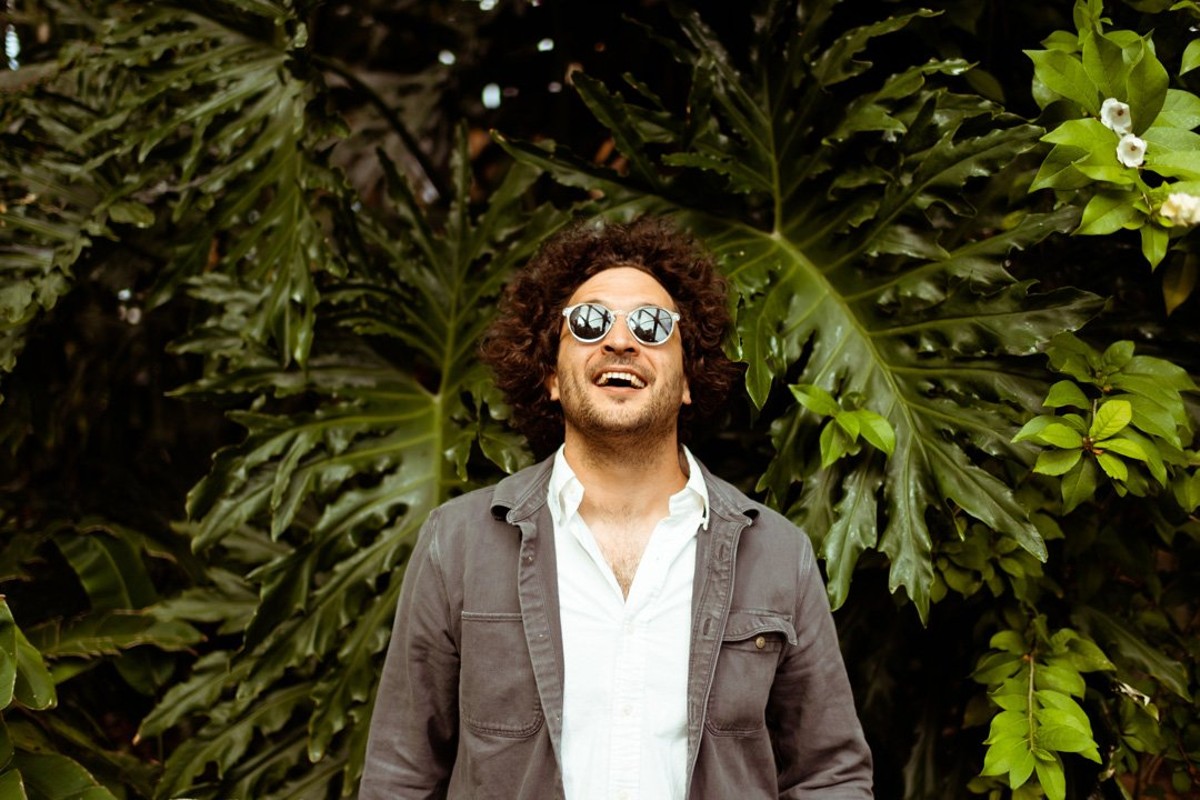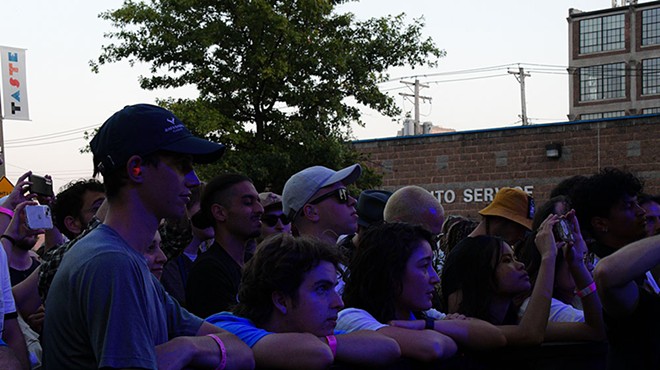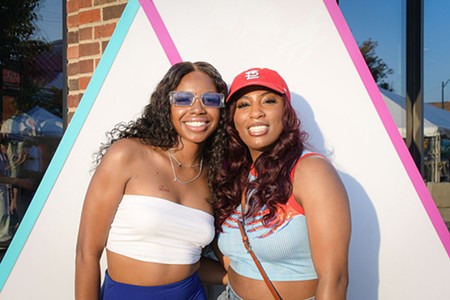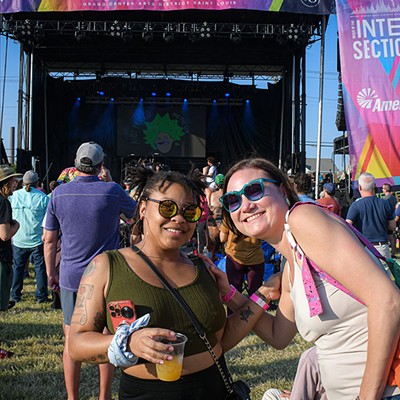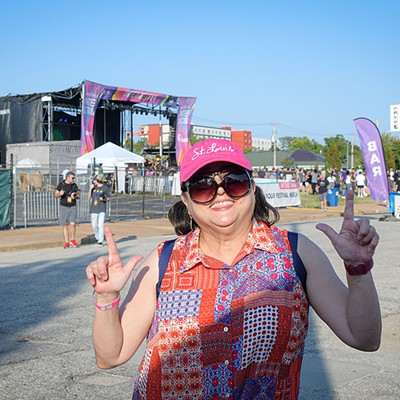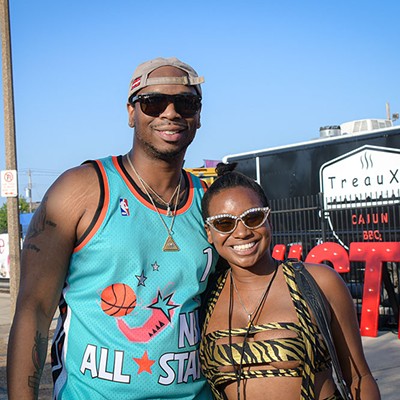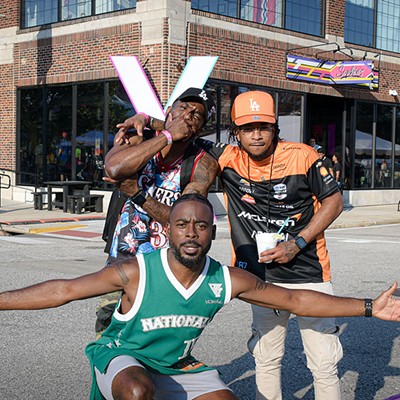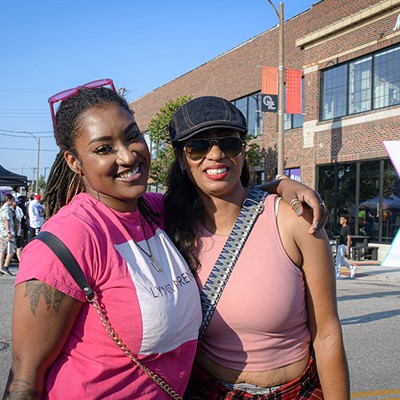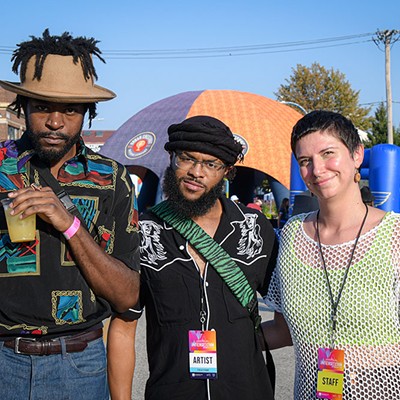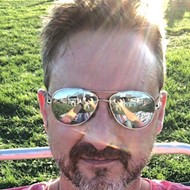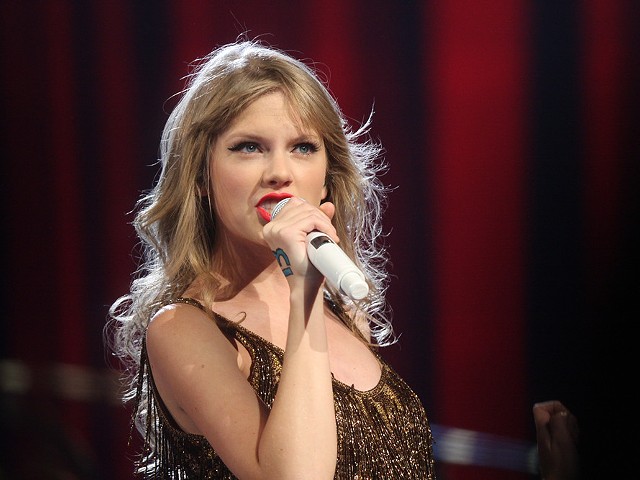Back in September, Andy Frasco & the U.N. held one of Music at the Intersection’s most outrageously raucous and rocking parties.
In his typical fashion, Frasco obliterated any distance between performers and the audience, standing on his piano, conducting the band like his hair was on fire and leaping into the crowd to teach everyone to dance the Horah. It was a setup for whooping, and Frasco, swigging from a bottle of Jameson, was a generous party host, bringing out Kam Franklin, lead singer for soul band the Suffers, as well members of our very own Funky Butt Brass Band for cameos. Such unpredictability is typical of Frasco’s anything-goes concerts, delivered with blow-beer-out-your-nose humor, boisterous audience participation and an eclectic mix of funky, jazzy, bluesy, swingy, soul-y music with guitar and organ and saxophone all over the place.
That musical mix can be heard on Frasco’s latest album, the panoramic L’Optimist, on which Frasco sounds as sonically exuberant as ever but takes on grown-up subjects like broken relationships and depression as well. Those are topics you can also hear Frasco discuss on his popular podcast, Andy Frasco’s World Saving Podcast, where he talks about mental health — life paths and how to get them back on track — with everyone from Parliament bassist Bootsy Collins to skateboard legend Tony Hawk to the Police drummer Steward Copeland to Jeopardy host Ken Jennings.
We caught up with Frasco ahead of his return to St. Louis, when he’ll play the Pageant on Friday, December 15 with opening act Maggie Rose.
Has your approach to songwriting changed over the years? If so, can you describe that evolution in terms of methodology and the results thereof?
I don’t think my approach to songwriting has changed. I’ve always tried to let it be my gateway to honesty. I think what I’m writing about has changed. I’m trying to approach optimism through the lenses of someone going through it. How to break through the depression to see the light on the other side of the tunnel.
How much is the hard-partying persona we see when you are performing an authentic version of yourself? How do you balance the party-dude performances with the rest of your life off stage?
I’m still having fun, but I just think it’s funny people think I’m partying 24 hours a day. I run three businesses. I drive the van in the mornings to the gigs, build all the budgets and spreadsheets, plus do a podcast every week interviewing people about mental health. Even if I wanted to, I don’t have time to slam beers all day. I’m just trying to show that you can still have fun while working hard every day on your dreams. It doesn’t have to be one or the other. You just have to do both in moderation.
You used to tour alone and pick up impromptu bands wherever you went (much like St. Louis hero Chuck Berry). Can you talk about why you went out that way, what made your particular style of music or performing conducive to that approach, and if there’s anything you miss about that way of doing things?
No one believed in me in the beginning. I was the only one believing in myself, and I wasn’t going to have strangers dictate the life I was going to lead. I always loved traveling and the idea of being on the road entertaining people. That kept my mind thinking that it’s OK to do this alone until people caught on with what I was trying to do. I think the only thing I miss was not having a childhood. The road grew me up so fast, and I had no choice to be put in situations that sometimes I wasn’t ready for. I had to put my head down and do the work.
What motivates you to continue recording and releasing music in album form? Is there any financial incentive in doing so?
I’m not doing this for the money [laughs]. I’m doing this because it’s my chance to try to help people with their struggles with their own brains.
In the song “Iowa Moon,” you mention hating 10-minute songs. Are you talking about jamming? You have been embraced by the jam community. Do you identify with the jam sensibility?
I just get bored quickly. I like to keep things moving. That wasn’t a dig at the jam scene. The jam scene was the first scene that fully accepted me. And I love them for that. My ADD sometimes kicks in when a guitar player is showing us every lick they have in their tool box on one song. I like it a little more spread out.
What is a song that you wish to have written?
“I Wrote Mr. Tambourine Man” by John Craigie or “Boots of Spanish Leather” by Bob Dylan.
You’re a busy podcaster these days. What led you into podcasting, and what have you learned from the endeavor?
It taught me that I’m not alone in this fight of being an artist. A lot of people don’t really understand how hard this life is. They think it’s all about partying and living life as happy as you can, but really it’s a lonely gig. And [podcasting] allows me to give artists an outlet that lets them be vulnerable and talk about the hard questions instead of just asking them what that song is about or the recording process like most interviewers do. I just wanted to ask them how they are doing because I’m going through the same thing. Strength in numbers.
You have been somewhat self-deprecating when evaluating yourself as a singer and piano player. What do you think is the relationship between your level of proficiency as a musician and your ability to connect with your audiences, particularly during concerts?
I’m just playing catch up. I started playing an instrument at age 19, so the self-deprecating stuff is just me in my head trying to be better at that part of the craft. What comes naturally to me is connecting to people, so once I figure out the piano I should be in good shape [laughs].
What is your relationship with St. Louis? Is there anything particular that you associate with the city or remember about performances here?
St. Louis and Springfield [Missouri] were the first cities that got me gigs. The Broadway Oyster Bar used to book me pretty much every month when I needed the dough. I just think loyalty is important, and I’ll always come back to St. Louis for how they let me in when I was young and didn’t know what I was doing at first.
What can we expect from the upcoming show at the Pageant in terms of how you are shaping the current tour or collaborations with Maggie Rose or even local players?
We know how historic and important the Pageant is to the St. Louis music scene. We’re not taking it lightly. We’re gonna give St. Louis the best show we’ve got.
Subscribe to Riverfront Times newsletters.
Follow us: Apple News | Google News | NewsBreak | Reddit | Instagram | Facebook | Twitter | Or sign up for our RSS Feed

